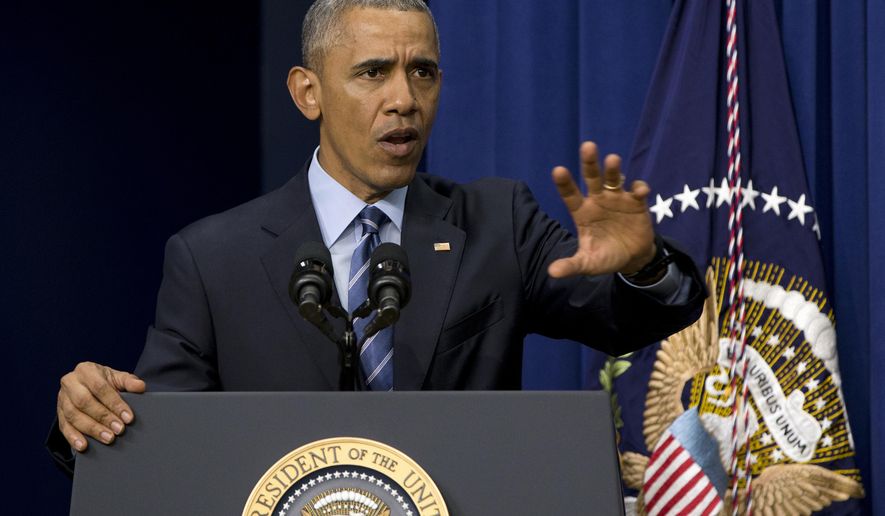Although President Obama has embraced the idea of offering second chances to ex-prisoners — like removing the box on employment applications asking if a candidate has committed a felony — his ideals have yet to be implemented at the White House, according to one criminal justice reformer.
Glenn Martin, founder of JustLeadershipUSA, said he was nearly denied entry this summer to a meeting with officials at the Eisenhower Executive Office Building adjacent to the White House where he was to discuss justice reforms and mass incarceration. Secret Service officers declined to let him through security with his colleagues, requiring that he have an escort before he was allowed to proceed.
Mr. Martin said it was obvious that his prior conviction, for armed robbery, was to blame.
“The irony and hypocrisy of it was not lost on me,” he said.
Mr. Martin said he decided to speak out about the experience, writing an open letter to the president in June about the incident, in part to raise awareness about the consequences that haunt ex-offenders long after they have finished serving their prison time.
“What’s missing from the movement on mass incarceration is changing the hearts and minds on the issue,” Mr. Martin said. “Until you help Americans have a different narrative on people who committed a crime, we are never going to end mass incarceration.”
Mr. Obama squarely put criminal justice reforms front and center as a political priority this summer, commuting the sentences of 46 nonviolent drug offenders and making the first visit by a sitting U.S. president to a federal prison. He said his visit to the El Reno prison, located outside Oklahoma City, in July was meant to shine a spotlight on the issues facing prisoners as they reenter society.
“Because while the people in our prisons have made some mistakes — and sometimes big mistakes — they are also Americans, and we have to make sure that as they do their time and pay back their debt to society, that we are increasing the possibility that they can turn their lives around,” the president said.
Requirements to disclose prior criminal convictions on job applications and a lack of skills-training programs in prisons can create hurdles to ex-offenders trying to rebuild their lives, advocates said.
Mr. Martin said his experience at the White House only demonstrates the various ways that ex-offenders carry a “scarlet letter” with them throughout life after a conviction.
“If this is what I get, imagine what the average person gets who is holding a minimum wage job,” he said.
Mr. Martin is hardly the first ex-offender to have had problems getting through White House security.
Daryl Atkinson, a lawyer with the Southern Coalition for Social Justice, was similarly held back during a security check in 2014 at the Eisenhower Executive Office Building, the online investigative news outlet Vice reported in July. He was among several guests being honored by then-Attorney General Eric H. Holder Jr. for their work to provide employment opportunities for ex-offenders.
“It’s a very sobering reminder that no matter what your accomplishments are in helping the formerly incarcerated, even yourself, with second chances and employment, you’re still very much treated as a second-class citizen,” Mr. Atkinson told Vice. “It flies in the face of what the administration is trying to do in regards to the integration of the formerly incarcerated into society.”
Since reports about Mr. Martin’s encounter in June, the Secret Service has declined to comment on the incident. Rather, the agency has described typical security protocol, which subjects every visitor to a thorough security screening procedure.
“Every visitor to the White House Complex undergoes a comprehensive security check prior to the scheduled visit,” spokesman Brian Leary said. “There are many considerations taken into account in making a final determination before allowing an individual access to the White House Complex.
• Andrea Noble can be reached at anoble@washingtontimes.com.




Please read our comment policy before commenting.